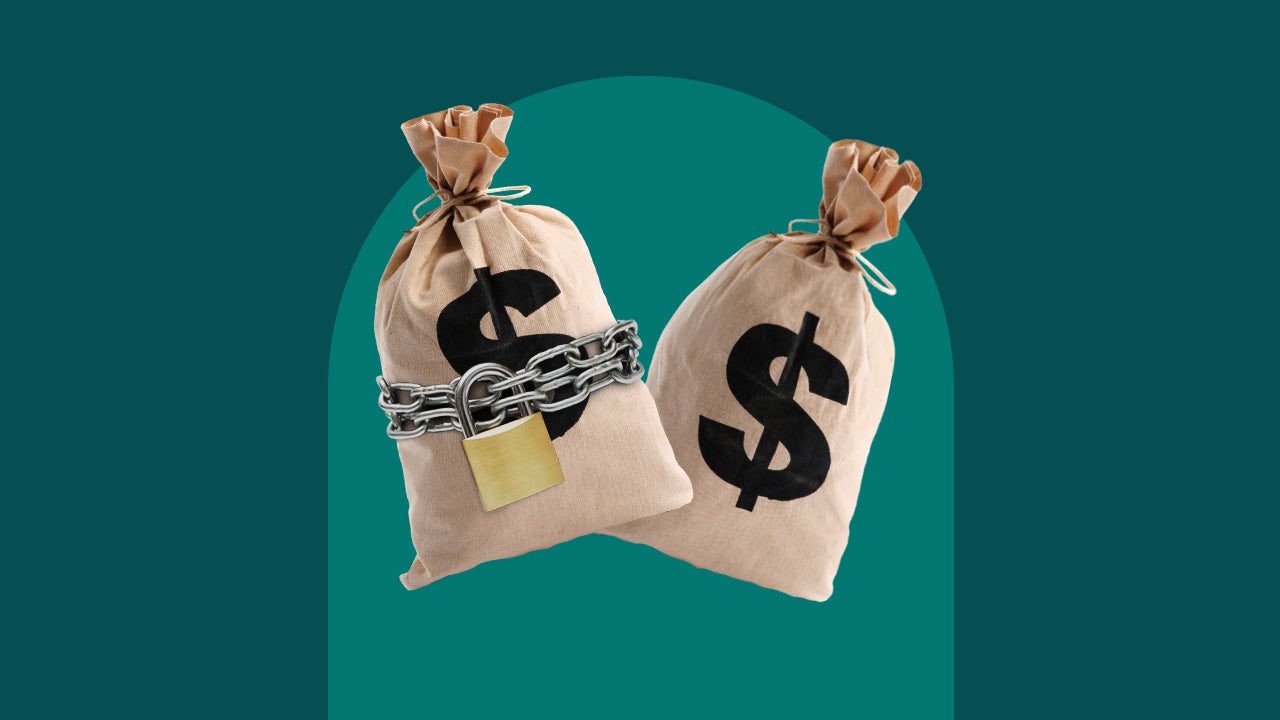Secured vs. unsecured personal loans: Key differences




Key takeaways
- Secured and unsecured loans can be obtained from a bank, credit union or online lender.
- Secured loans require collateral but can get you access to a larger sum of funds.
- Unsecured loans do not require collateral. The amount and rates you’re eligible for are based on your creditworthiness.
Personal loan shoppers will find two main categories: secured and unsecured personal loans. A secured loan is backed by collateral, meaning something you own can be seized by the bank if you default on the loan. An unsecured loan, on the other hand, does not require collateral. Unsecured loans are the standard option among personal loan lenders.
Both types of personal loans have pros and cons, so choosing the best for you can be tricky. Gathering the facts about secured and unsecured loans is a great first step in selecting a personal loan.
Pros and cons of secured and unsecured loans
To evaluate your options, consider the benefits and drawbacks of secured and unsecured personal loans.
Pros and cons of secured loans

Pros
- Less stringent eligibility requirements.
- Often feature lower interest rates than unsecured loans.
- Higher borrowing limits than unsecured loans, if your collateral is worth enough.

Cons
- Collateral can be taken if you default on the loan.
- There tend to be restrictions on how you can use the funds.
Pros and cons of unsecured loans

Pros
- A lender can’t take your assets if you default on the loan — though they may still sue you.
- No collateral required.

Cons
- Often have higher interest rates than secured loans.
- It may be tough to qualify with bad credit.
What is the difference between secured and unsecured loans?
Secured and unsecured personal loans differ in five areas: the need for collateral, interest rates, the amount you can borrow, how you can use the funds and what you need to qualify.
| Secured loan | Unsecured loan | |
| Collateral required? | Yes | No |
| Interest rates | Lower average interest rates than unsecured loans | Higher rates than secured loans; currently above 12 percent on average |
| Loan amounts | Up to a percentage of the value of the collateral | Up to $100,000 in some cases |
| Qualification requirements | Lower credit score requirements | Good to excellent credit and high income required for best rates |
| How funds can be used | May need specific spending purpose to qualify | Few restrictions; funds can generally be used as needed |
Collateral
Collateral is the big difference between secured and unsecured loans. With a secured loan, you give the lender the right to seize the asset you use as collateral should you fail to repay the loan. Collateral might be:
- Cash deposits.
- Stocks or bonds.
- Your home equity.
- Vehicles or boats you’ve paid off.
- Fine art or jewelry.
- Home fixtures.
The last option is a less-common one, but online lender Best Egg offers fixture-secured personal loans.
With an unsecured loan, no assets are required. But if you miss payments, your credit score will suffer — as it would if you defaulted on a secured loan — and you will be pursued by collections.
How you can use the money
Most unsecured loans have few restrictions on how the money will be used. Prohibited uses typically include:
- Gambling.
- Buying securities.
- Illegal activities.
- Secondary education tuition.
Otherwise, you’re free to spend the money as you please. You must, however, still tell the lender your intended loan purpose when applying.
With a secured loan, you may need to plan to use it in a specific way to be eligible. For example, OneMain Financial offers secured loans for vehicle purchases only. Its unsecured loans are more flexible.
Interest rates
Lenders take on less risk with secured loans since the borrower has more incentive to repay the loan. Because of this, average interest rates are typically much lower. Best Egg, which offers both loan types, claims its secured loan annual percentage rates average 20 percent lower than its unsecured loan rates.
However, with a good credit score, you can still get favorable rates for either type of loan. A good FICO credit score is 670 or higher, though lenders may have their own definitions.
Borrowing limits
Due to the financial approval requirements, secured loans tend to have higher borrowing limits, giving you access to more money.
You may still be able to get unsecured loans of up to $100,000 with lenders like SoFi. However, you will need to meet strict lending requirements.
Requirements to qualify
Some lenders may be willing to issue you an unsecured loan with bad credit. However, many lenders will decline your application or charge you higher rates and fees. You’re considered a riskier borrower.
With secured loans, on the other hand, credit requirements may be lower. The borrower offsets the lender’s risk by putting an asset on the line.
Should you get an unsecured or secured loan?
Which loan type is better depends on your needs, assets, financial history and credit score. Since secured loans will often have lower interest rates and higher borrowing limits, they may be the best option if you’re confident about being able to make timely payments.
That said, an unsecured loan may be the best choice if you don’t want to place your assets at risk. Interest rates may be slightly higher, but they could still be competitive if you have good credit.
How to apply for a secured vs. unsecured loan
For both secured and unsecured personal loans, start by identifying a lender. You can compare lenders to find the ones that offer you the most favorable rates and terms. There are many types of lenders, so look at banks, credit unions and online lenders. If you can, apply for prequalification with your top lenders. This will allow you to see what they can offer you without a hard credit inquiry.
When it’s time to fill out the loan application, come prepared with all the right documents and information. An unsecured loan application will require income verification documents, address, employment info, proof of identity and bank account information. For a secured loan you’ll need all of these plus documentation of the assets you will use as collateral.
Once you fill out the application and submit the documents, the lender will look everything over and verify the details you’ve given. This verification process may take longer for a secured loan, depending on the collateral, because the lender may take extra time and work to verify the value of it. For both loan types, if all looks good, the lender will approve your loan.
Bottom line
Both secured and unsecured personal loans have distinctive benefits and drawbacks, so take a look at your credit and assets to decide which will work better for you. Whichever type of loan you choose, make sure to shop around with multiple lenders and compare their rates and fees to ensure that you’re getting the best personal loan rates for your financial needs.
Why we ask for feedback Your feedback helps us improve our content and services. It takes less than a minute to complete.
Your responses are anonymous and will only be used for improving our website.
You may also like

Low-income loans: Personal loans for a tight budget

Secured vs. unsecured fast business loans


